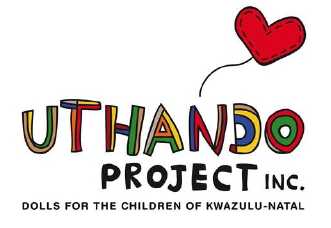
We began making dolls as a response to the impact of the HIV/AIDS pandemic.
Children’s lives are deeply affected by the distress in every family caused by the HIV/AIDS pandemic. To lose one or both parents is a shattering experience for children.
The impact extends to other families, and to the elderly, who are now under great pressure to raise the community’s children. Even children in an intact family may now be sharing the attention of their parents (and all the family space and resources) with grieving cousins. All children are surrounded by family and community grief.

We want to acknowledge the value of play.
Children can deal with the difficulties of life better if they are not alone in their grief and confusion. Sometimes adults don’t know how to have difficult conversations with children, and play can be a way for caregiver and child to connect and talk together. Play may help a child better make sense of their emotions, which often leads to more settled behaviour and everyone in the family benefits.
Of course, the other vital factors of security, food, shelter and education are essential for childhood development too, but play is something that can be forgotten in the midst of poverty and grief. ALL children have a need to play, to feel safe and cared for.

The role of a doll is more than a toy.
A doll can become a companion of one’s very own, someone to talk to and cuddle, a silent friend. Caregivers can introduce difficult conversations through the doll (How is she feeling? What would he say?) Children want to copy the daily events in their life, where many see bewildering signs of illness and death. They may want to act out funerals, or other sad scenes, allowing them to release their feelings through play, and allowing a sensitive caregiver to learn more about their inner world.
The effects of having a doll (for both boys and girls) cannot be overestimated. Imaginative play with dolls can give confidence, creativity and an understanding of where you fit into your community. Through play, adults learn more about how to be with children in distress, are reminded to join in the fun of play, and share in the comradeship in making dolls together.
Read more: Find out more about play in our Awareness Resources section.
Uthando Dolls
Uthando encourages the design of dolls which reflect the child’s appearance and culture. Often these type of dolls cannot be bought or may cost a lot of money. By making and sending a doll, dollmakers around the world can show their solidarity with communities in need, and feel that they are part of the Global Family. Making a doll is a richly creative experience – and everyone feels happier in making something with their own hands for a child in need.





